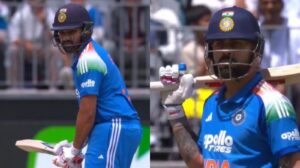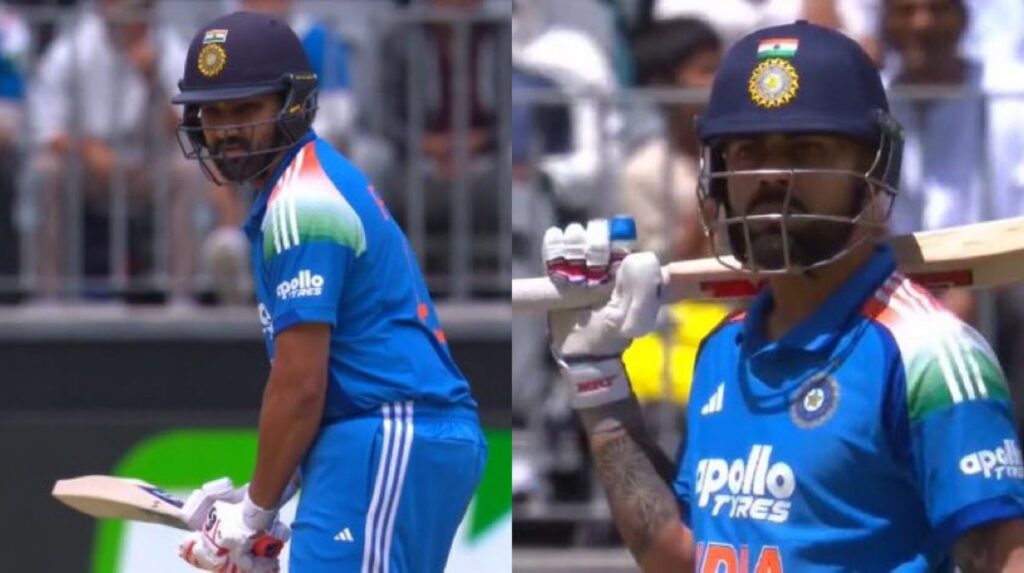
Gargi Raut
There is a reason why every visiting team to Australia is welcomed at the Perth Stadium for the first match. The wicket in Perth offers one of the toughest conditions to bat on; it offers tailor-made assistance to the fast bowlers with a fast and bouncy track. This very factor led to a top-order collapse of the Indian Team in the first ODI.
Rohit Sharma, Virat Kohli and Shubman Gill lost their wickets early in the innings, thanks to the Perth wicket and the steaming Mitchell Starc and Josh Hazlewood. Failing to adapt to the bounce and coupled with the overhead conditions, the two greats of Indian cricket failed to make a mark with their bat.
While fans left the stadium disappointed after India eventually lost the rain-affected game, social media went abuzz with a wave of critics concluding that the first game of the series has signalled the end of Ro-Ko’s career. The legendary pair are returning to international cricket after a lay-off, having retired from Tests and T20Is. The last international tournament that the duo participated in was the 2025 Champions Trophy.
Ahead of the series, there was a general consensus among fans that the two needed a “cluster” of matches to properly assess their form, that it would be premature to draw conclusions after just one series. After all, the Australia tour comprised only three ODIs, hardly a realistic sample size to judge a batter’s rhythm. But following last night’s defeat, public memory, as fickle as ever, seems to have conveniently forgotten all about that “cluster” everyone once insisted on.
Social media is now overflowing with calls for retirement after a failure in a single match, let alone one series. What many have forgotten is that form isn’t something that returns overnight. It is rhythm that is built through consistent participation in matches, as the phrase goes “there’s nothing like match practice”, not even nets or practice matches can replicate it.
Expecting the batting duo to dominate in tough Australian conditions, with Starc and Hazlewood steaming in under overcast skies, was never realistic. But it is quite disappointing to see how quickly the discourse around them has shifted.
The point here is, social media thrives on instant judgement and magnifying failures. Every dip in form is treated as a downfall, but the game knows that truly great players have never been defined by their lows but rather by their response to it. One bad game in Perth doesn’t erase a decade of dominance, with two ODIs still to go, there is enough time for the narrative to flip again.
Follow Revsportz for latest sports news





